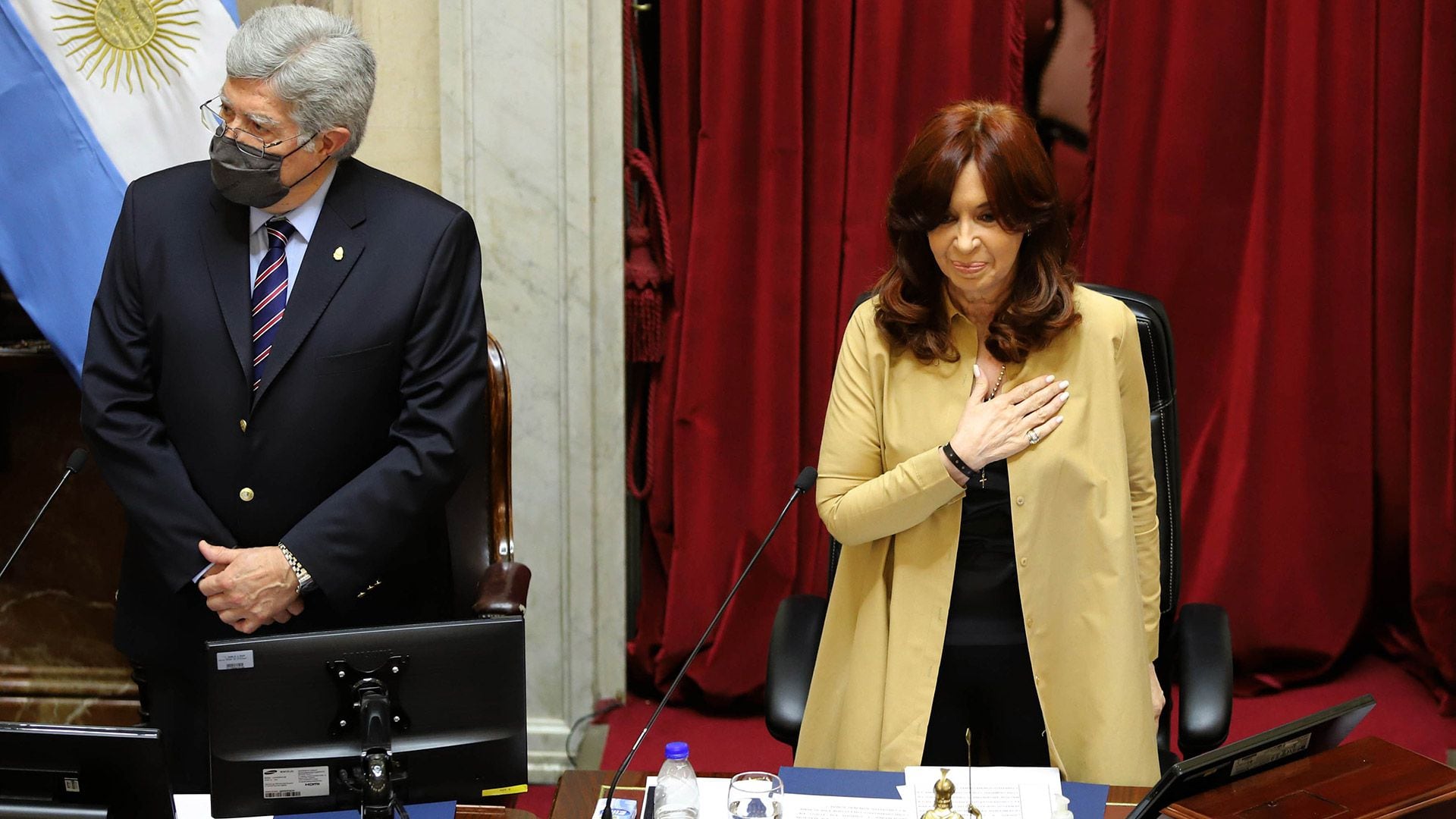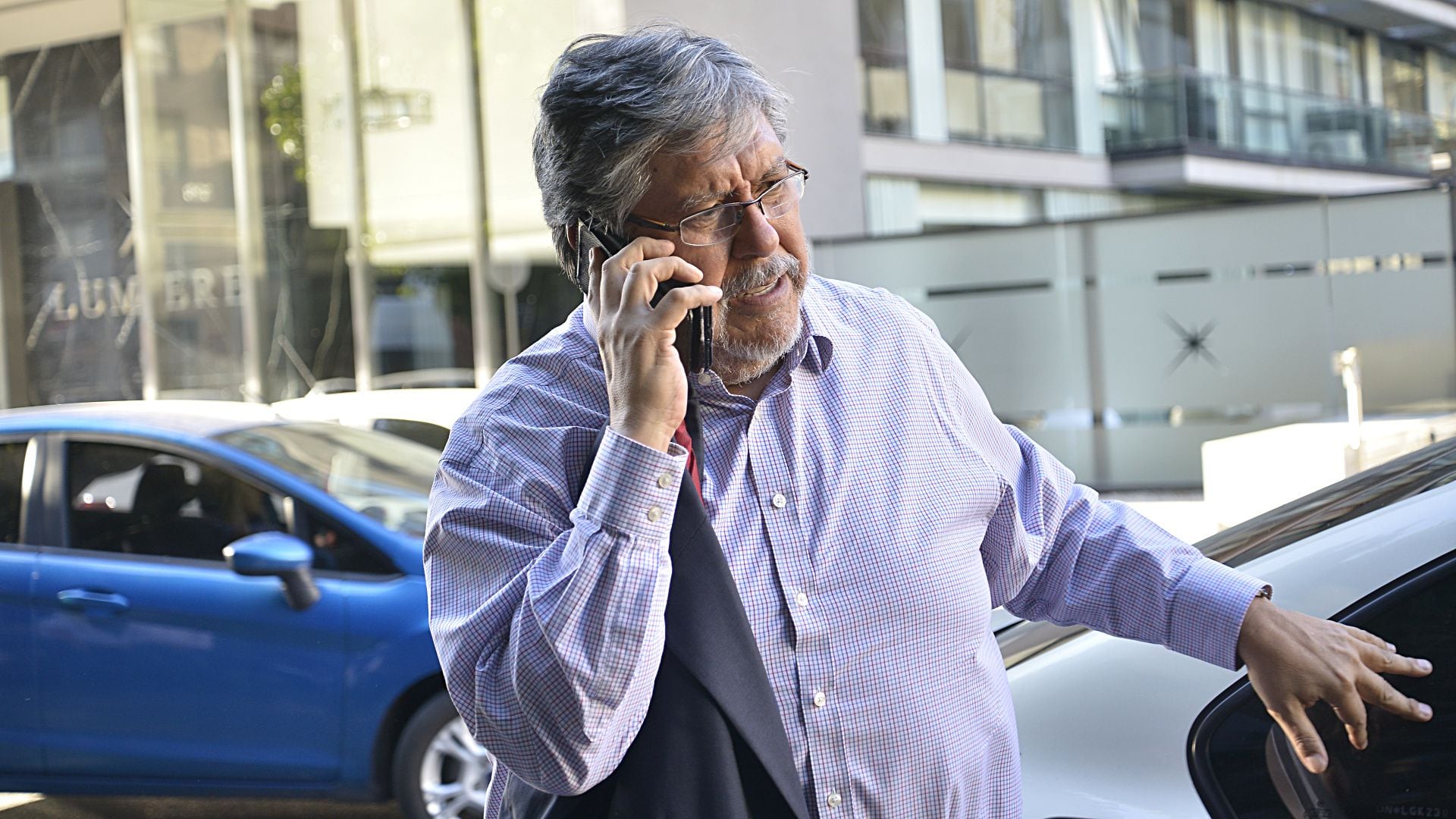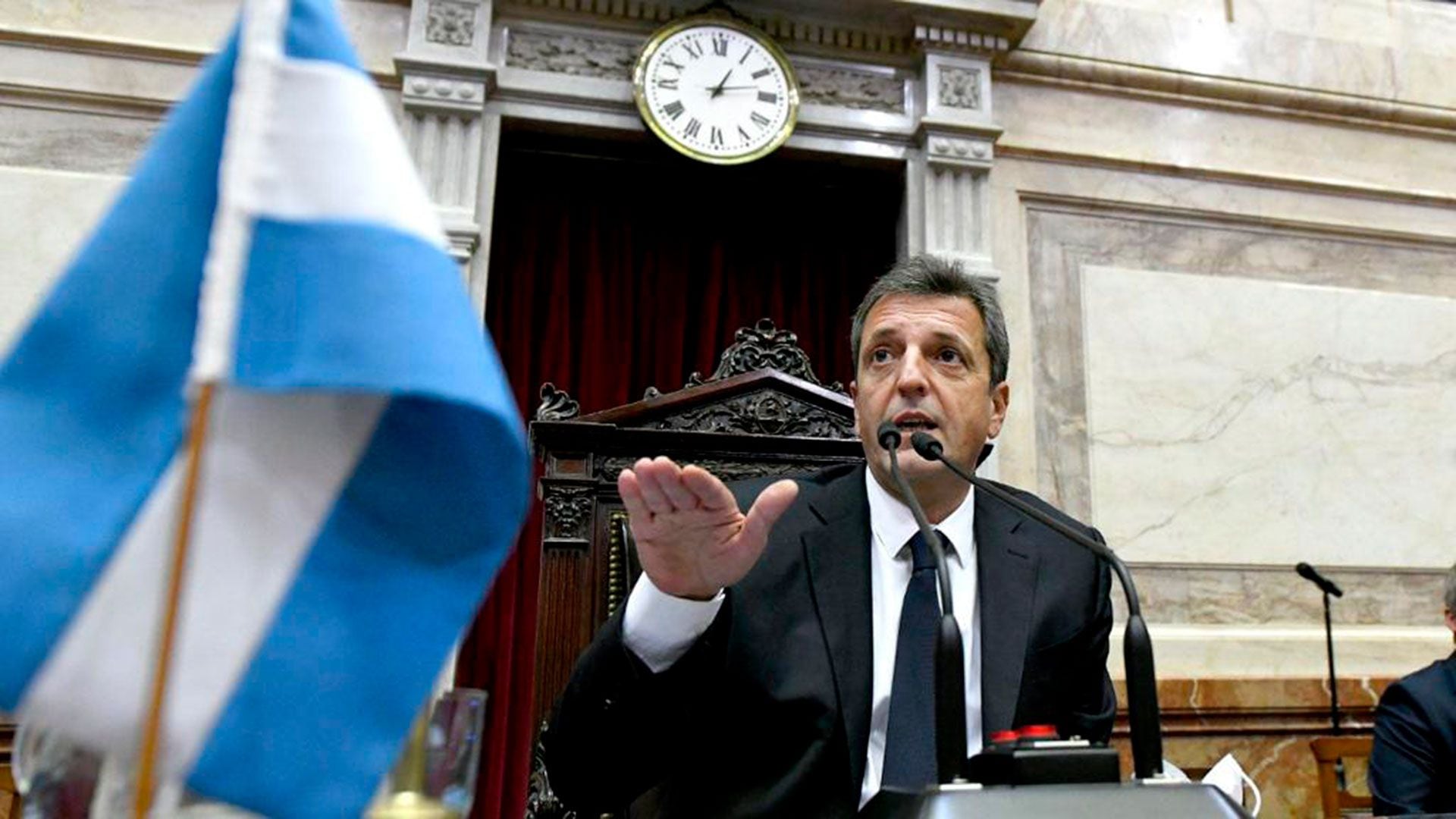
Alberto Fernández and Cristina Kirchner are still not talking to each other, although within the ruling party, concrete requests are beginning to appear for both to sit face to face again and to create the political link that unites, at a small point along the line, the Front of All.
The problem is that, for the moment, neither of them wants to engage in communication. In the coalition, those who consider it still feasible to seal peace understand that the only way to do so is through an agreement between the President and the Vice-President.
To try to make efforts to stop the escalation of cross-statements, following the public sincere of officials such as the Foreign Minister, Santiago Cafiero, who last Sunday said that “to ignore the fact that the Frente de Todos is going through a critical political moment today would be foolish”.
Through the Peronist arteries there are ministers and officials who try to bring positions closer together to prevent the total breakdown of the political alliance. The problem is that within the same coalition there is another very concrete idea: the alliance was already broken when La Campora decided to vote against the agreement with the IMF.

One of those who seeks to manage the rapprochement of the two worlds that coexist in the Government is the Secretary for Parliamentary Relations, Fernando “Chino” Navarro. With an office in Casa Rosada, the leader of the Evita Movement is one of the leaders who reports to Fernández but who tries to keep the unit from exploding.
In recent days he had two meetings to seek to bring the parties closer together and reach an agreement to build a new political functioning in the Front of All. Although Navarro denied the match, Infobae was able to confirm that he held a meeting with Máximo Kirchner in Congress last Thursday.
The social leader is outraged by leaks of harsh Kirchnerism targeting militants from the space he leads as responsible for the attack on Cristina Kirchner's office. In this context, and with the desire to enter into negotiations to revoke political dialogue, he visited the office of the camporo leader.
But it wasn't the only meeting he starred in. Last Friday he met with the Minister of the Interior, Eduardo “Wado” de Pedro, on the ground floor of Casa Rosada in the same vein. Bring the parts closer and put the cards on the table. Navarro spoke often with the President and has been insisting, in public and in private, that internal dialogue must be put on track.

In that scenario, the president of the Chamber of Deputies, Sergio Massa, chose to run to the side in the middle of the conflict. In their environment, they assured that last weekend he made his position clear through expressions in the media and that now it is time for the rest of the partners to take a step forward.
Massa asked to re-engage in dialogue, do it privately and try to sustain unity in order to continue the management. It was his political message. You don't have to break up. “It's time for Alberto and Cristina to move their chips,” they said close to the leader of the Renovator Front. He's already played. Now is the time for the other partners.
In the Albertist ranks they are still waiting for the President to show power and make some decision that will mark his vocation to lead the Government more firmly. A decision that makes it clear to La Campora that it is not willing to let go of the repeated slights it suffered in recent times.
“Let's hope he reacts. If they're not going to eat it,” reflected a leader very close to Fernández. Another, who maintains fluid contact, said: “Now we need deeds more than words.” Annoyance and anxiety are present in the recesses of the presidential environment, where there are also very clear anti-rupture positions such as that represented by the Legal and Technical Secretary, Vilma Ibarra.

The wait is beginning to become long for some members of federal albertism and Peronism, who look at the Head of State sideways, undaunted in the face of the endless number of cross operations that ultimately result in the weakening of the presidential image. The same ones that reduce their expectations regarding the creation of a scheme that will sustain the road to re-election.
“Talking to the Campora is like a negotiation between Russia and Ukraine. We say that we are going to seek peace but, in the meantime, missiles continue to fall and generate damage,” reflected an important government official, following the war theme that shocks the world and which served the President to draw a strange parallel in the fight against inflation.
Cristina Kirchner is still in absolute silence. In the corridors of the Executive they expect a new letter with some concrete position on the internal rupture. Accustomed to the Vice-President's darts, they wonder what the next step will be and in what sense they will take it. In the Senate they say that, for the time being, there will be no communication at all.
In the bosom of hard Kirchnerism they maintain the idea of not breaking the coalition. They don't take their feet off the plate. They say that they will not leave and that the only dialogue to generate an armistice has to be starred by Alberto Fernández and Cristina Kirchner.
However, there are political signs that do little to make such a pact possible. The last one was the open letter published by Kirchner intellectuals in which they talk about “moderation or people” and launch harsh criticism of Casa Rosada and Fernández's management.

“Government policy has reached its most tragic point: the preparation of ad scenarios where no announcements are made. It is the failed practice of anticipating policies that do not materialize: the government itself generates expectations and the disappointment of expectations. It is the cruel moment where moderation transforms into impotence”, they indicated in one of the hardest fragments.
The message aims to highlight the failed announcement of the “war” against inflation that the Head of State made last Friday. One more example of the confusion that reigns in management and the presidential clumsiness that results in questions without answers, in advertisements without ads.
The letter marks the fundamental political differences between Kirchnerism and Albertism. Two Peronist ways on how to carry out an economic and political plan. Differences that, at this time, and despite all the efforts, seem irreconcilable.
A trusted minister of the President made clear the interests behind the need to re-establish the lines of communication between Albertism and Kirchnerism: “In Peronism, bridges are always built when the next election is at stake.” After all, neither sector can be competitive if they are divided. It's a matter of mathematics.
KEEP READING:
Últimas Noticias
Debanhi Escobar: they secured the motel where she was found lifeless in a cistern

The oldest person in the world died at the age of 119

Macabre find in CDMX: they left a body bagged and tied in a taxi
The eagles of America will face Manchester City in a duel of legends. Here are the details

Why is it good to bring dogs out to know the world when they are puppies




